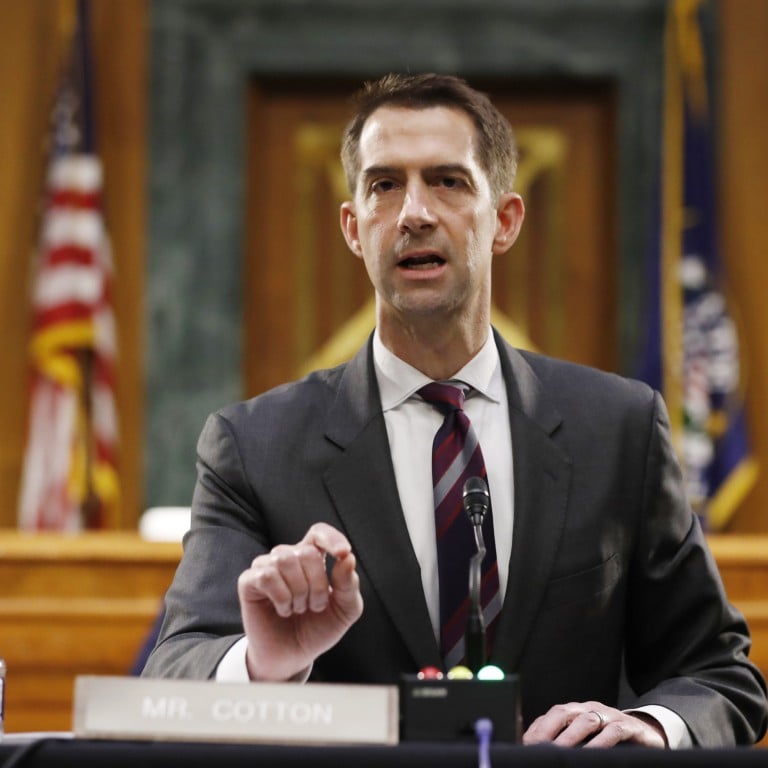Meet Senator Tom Cotton, who could be Donald Trump’s VP: he’s decried pro-Palestine protesters, called for military suppression of Black Lives Matter, and flown a flag associated with Capitol riots

- Tom Cotton, who went to Harvard Law School and served in the US army, has made a slate of controversial comments – recently, he encouraged forcible removal of protesters calling for a ceasefire in Gaza
- He’s been seen flying the controversial Christian nationalist ‘appeal to heaven’ pine tree flag outside his Senate office – which can be read as supporting the January 6 Capitol riots
Republican Senator Tom Cotton has called former US President Donald Trump’s conviction in his hush-money case a “travesty of justice”.

Cotton, a senator from Arkansas, has had a quick rise on Capitol Hill, which began in 2013 in the House of Representatives. Cotton, who considered running for president a few years back, is not without controversy himself. From being accused of promoting violence to supporting military intervention, here is what you need to know about the 47-year-old military man.
Tom Cotton’s long-time relationship with Donald Trump

According to The New York Times, Trump has “spoken highly” of Cotton for years. Back in 2016, Trump, who was then US president, considered Cotton for an administration post, with the two forming a strong relationship. The publication reports they worked together on immigration issues at the time.
In a profile piece in the New Yorker, Cotton said that when Trump is mocked for his hair, skin colour and accent, it is actually mockery of all his supporters: “What I don’t think they realise is that out here in Arkansas and the heartland and the places that made a difference in that election, like Michigan and Wisconsin, when we hear that kind of ridicule, we hear them making fun of the way we look, and the way we talk, and the way we think.”
He went to Harvard and wrote for the Crimson

Cotton studied at Harvard Law School where he helped organise the Harvard Model Congress and wrote for the Crimson, the campus daily paper. Per the Crimson, in his final column in the publication, Cotton said he took stances that he hoped would help stimulate debate: “It was my intent to challenge with my writings; and by challenging, I meant to improve, to jolt slumbering minds into wakefulness.” It was this platform that helped elevate his profile.